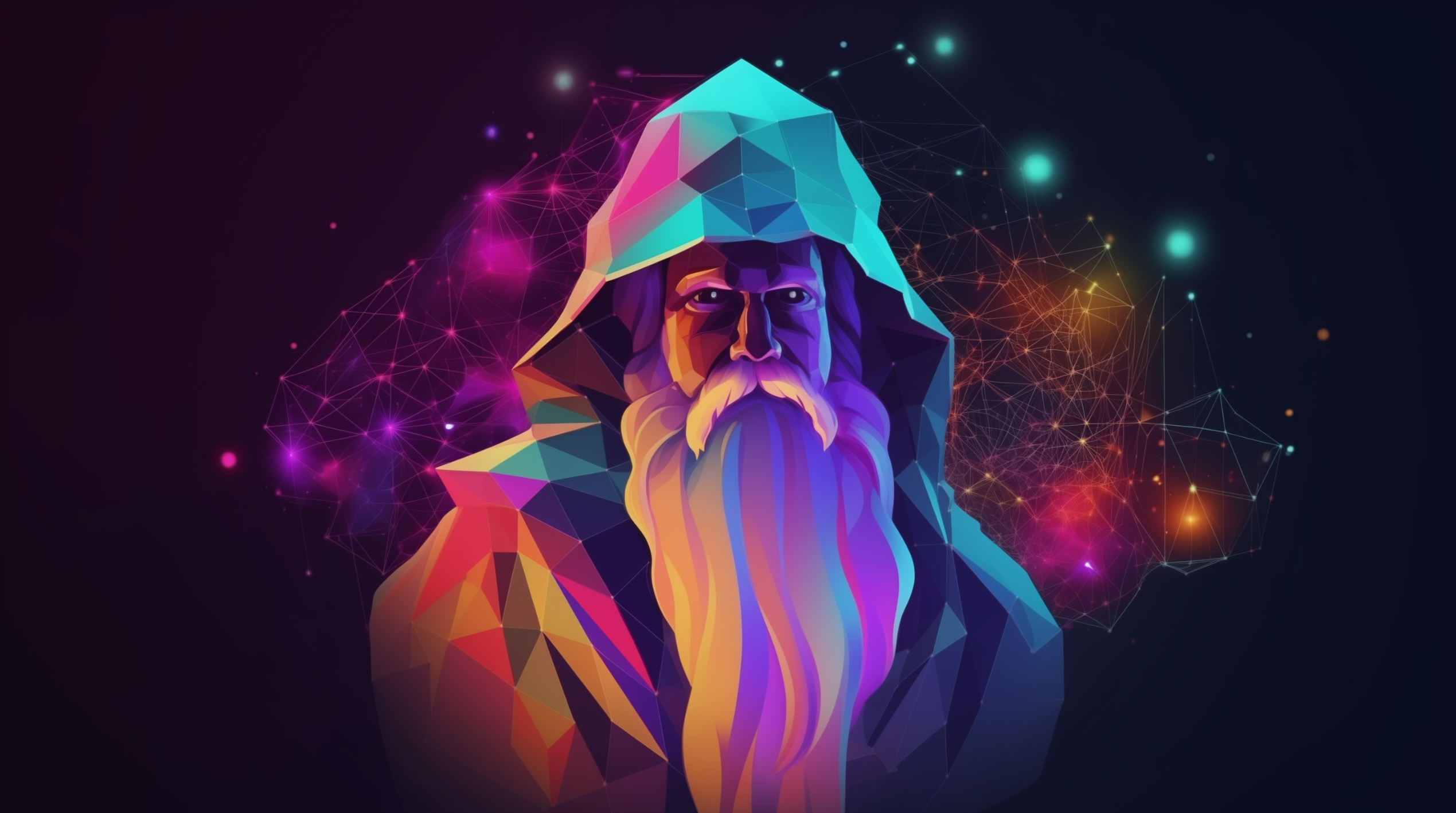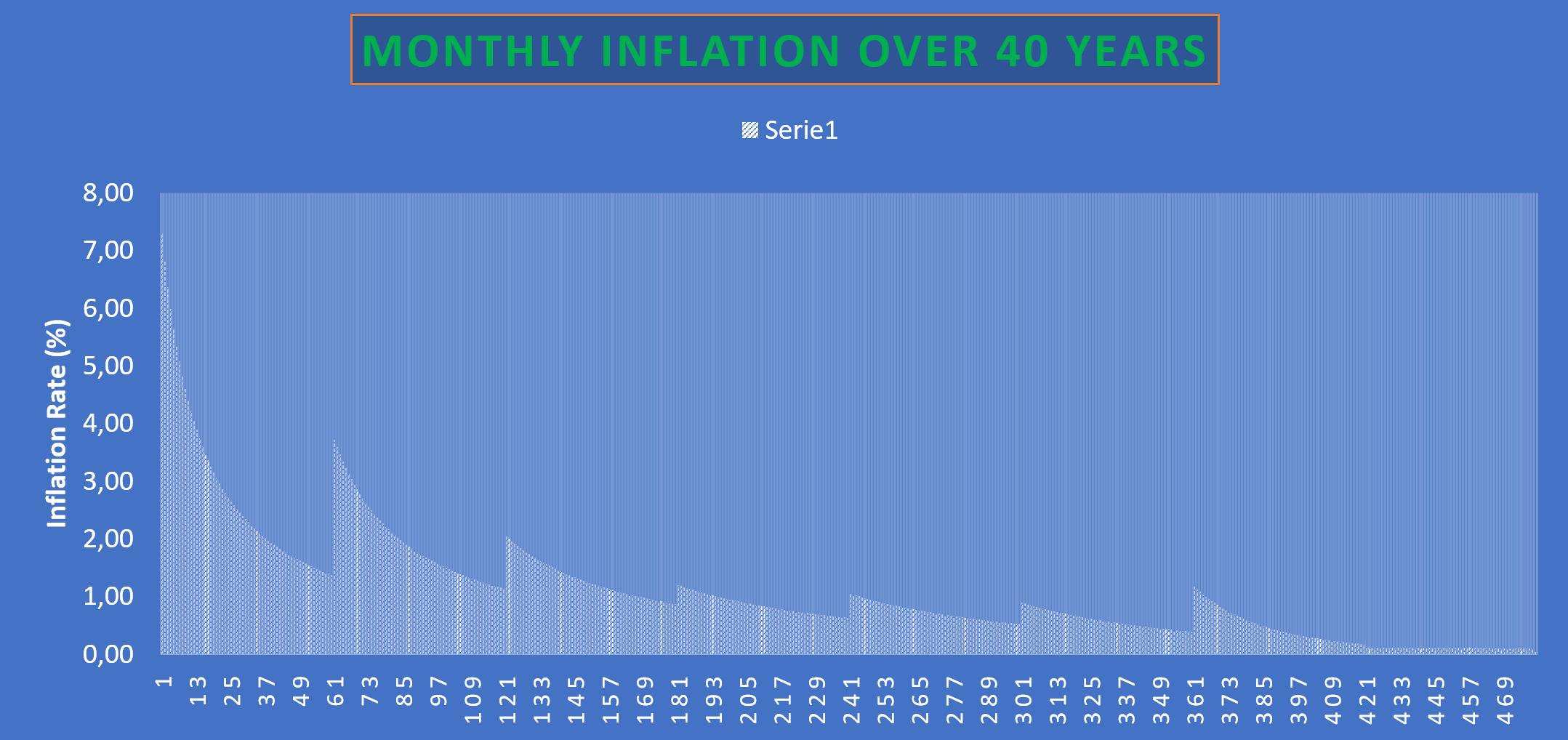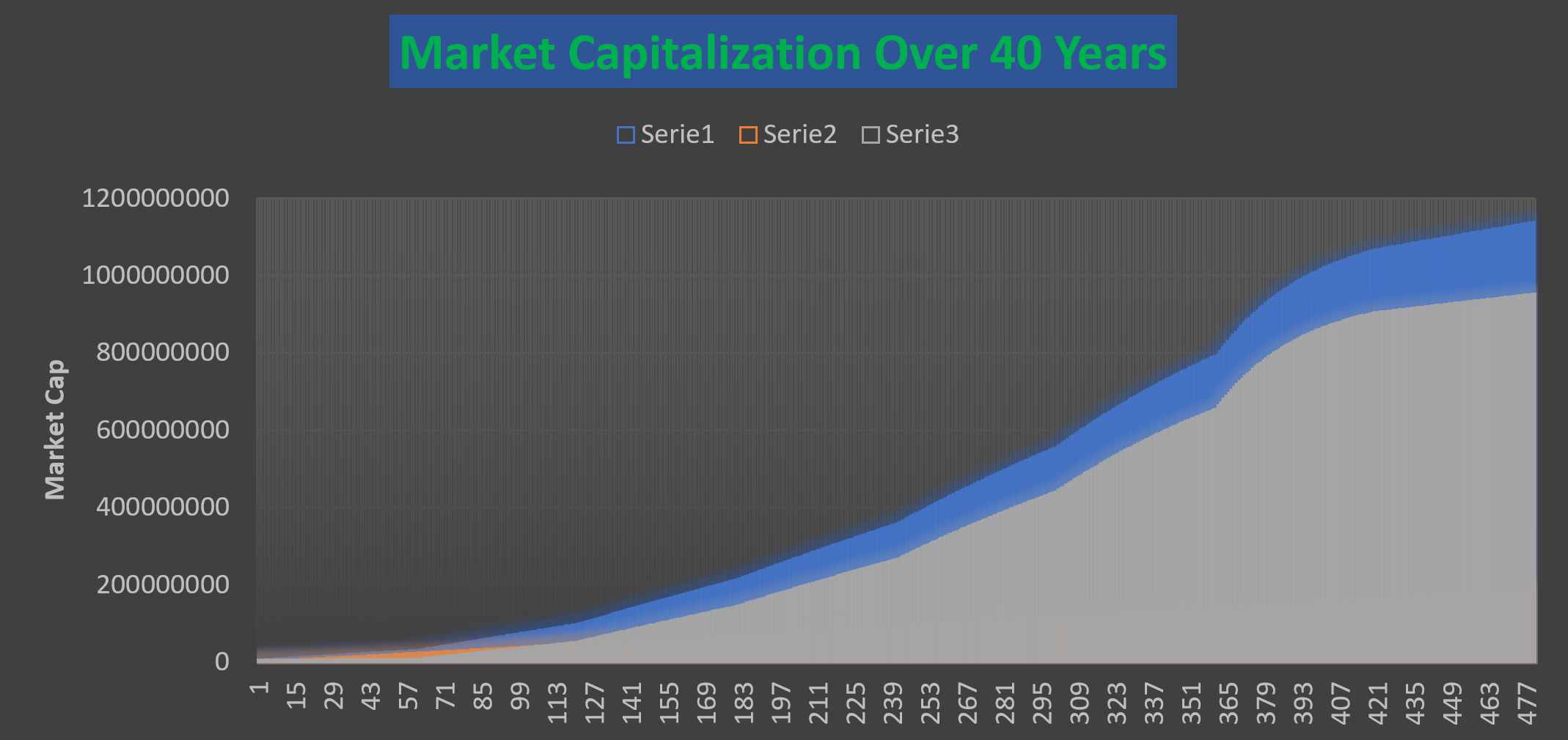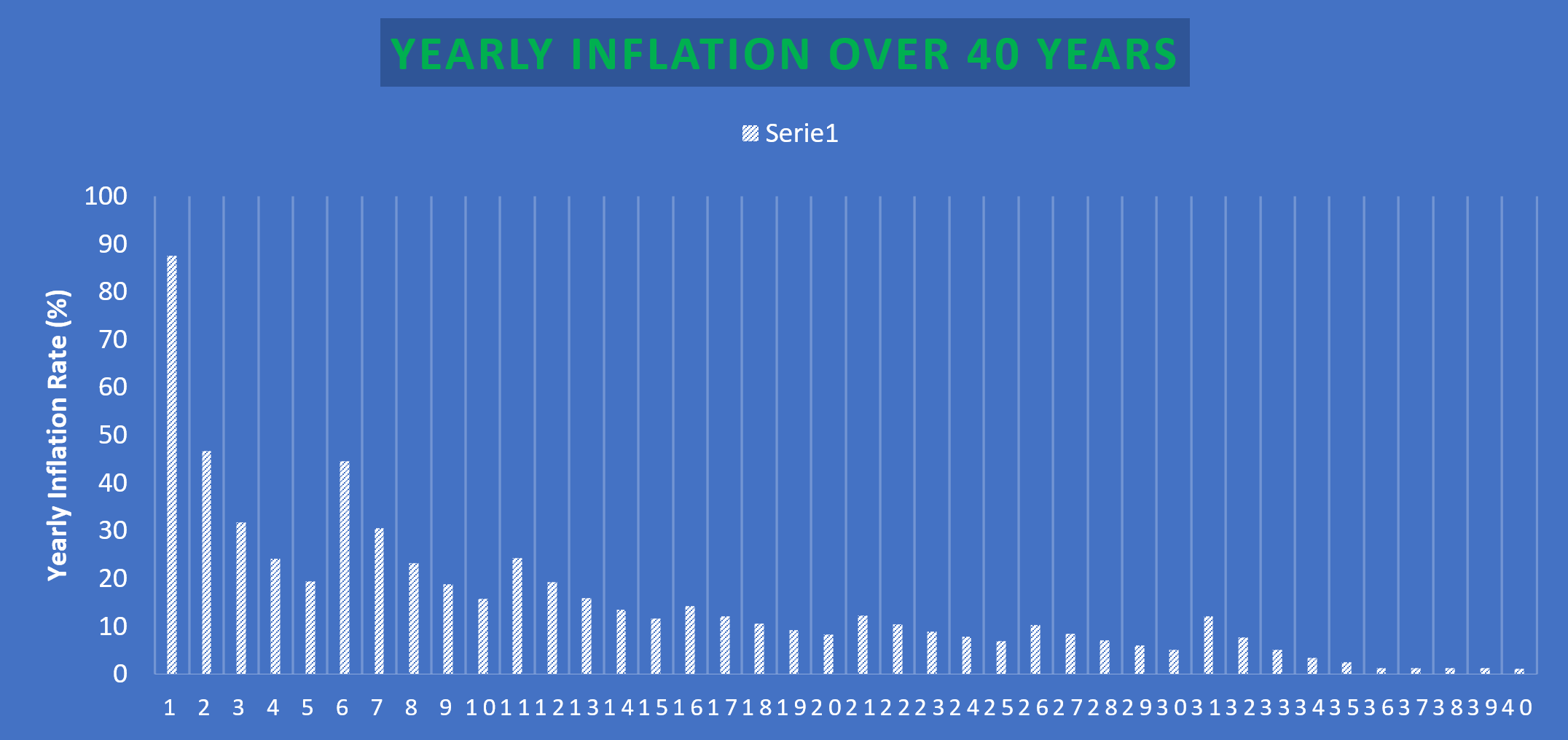🧙♂️ Gridnet OS: The Next Big Thing in Tech? 🤔
 Popek1990.eth
Popek1990.eth
Not so long ago, I stumbled upon the #GridnetOS project, and I must admit, it caught my interest, and I'll probably stick around for a long time.
... Why? The project resonates with my ideology, and it's something new in the web3😉 I've decided to share my thoughts with you all ✌️
🧙♂️ Gridnet OS - P2P operating system revolution 🧙♂️
Gridnet OS isn't just another operating system, it's quite different from the familiar Windows or MacOS. To me, it's a revolution in the world of operating systems - I don't know of any other project that's creating a peer-to-peer based operating system.
The Gridnet Network is like the Wild West of technology - no central sheriff, no single place ruling everything. It's a whole different story compared to the well-known, potentially keylogging Windows or MacOS 😉
In Gridnet, everything is like a puzzle scattered across the entire P2P network. Your applications, files, settings - everything is dispersed and replicated among network users. It's like a vast, breathing network, where every piece of data has its place in the dark corners of the internet.
Sounds good?😉
Exploring Gridnet's unique features? 🤔
No Central Server: GRIDNET operates on a peer-to-peer (P2P) model, meaning there's no central point through which all data passes.
Anonymity: Thanks to advanced encryption and onion routing, users can enjoy greater privacy 🧅
Resilience to Failures: Removing individual nodes doesn't affect the entire system's operation, making it more reliable.
Decentralized Applications: The ability to create and use applications that operate in a P2P model.
WebRTC and Secure Communication: GRIDNET OS introduces a new version of WebRTC that's decentralized, enabling real-time communication directly from browsers without central servers. This ensures that conversations and messages are protected with robust end-to-end encryption, maintaining privacy and security.
Decentralized P2P File System: Enables secure and distributed data storage.
Compatibility with Linux/Unix: GRIDNET OS offers a degree of compatibility with popular operating systems.
Gridnet is more than just technology & OS - it's also a story.
It didn't just appear 'yesterday'. Since 2017, a group of academic brains (Poles) has been working on this operating system, sharing their progress daily on YouTube. Believe me, there's probably about 1TB of material there! I've been observing the devs progress for a while and have great respect for their work and dedication.
In 2022, the team published a scientific article "UI dApps Meet Decentralized Operating Systems" in MDPI Electronics, a place where researchers share their latest discoveries and ideas. There, they presented their vision and architecture of Gridnet OS to the world. Curious about what all the fuss is about? Check it out here: MDPI Electronics.
The Lowdown on Gridnet Tokenomics 🧙♂️
Let's dive a bit deeper into Gridnet's world, focusing on something that often feels like a cryptic puzzle – its tokenomics, inflation, and vesting. This is where the intriguing game of digital economy, often seen as speculation, really kicks off 🧙♀️.
We're zooming in on Gridnet's own currency, the $GNC token. This token is the financial lifeblood of the whole Gridnet project. As of now, the only way to get your hands on $GNC is through the OTC market, which you can find on their Discord.
If we take a peek at the latest figures, there are 7 032 141 $GNC tokens circulating out there.

The numbers :
Max supply: 952 million GNC
Circulation supply: 7 032 141
Current price: $8.5 as of writing (01.12.2023)
Monthly inflation (POW): 388.8K - rewards for miners
(90 GNC per block, with a block every 10 minutes),
the rest goes to the team's vesting.Total monthly inflation (POW + Vesting ICOFund): 417K $GNC
Market cap: $60 million
GRIDNET's unique inflation mechanism involves freezing the block mining rewards in the POW system for about two months. This means if someone starts mining $GNC and mines the last block today, all their tokens will become tradable only two months from now. And here's another thing to note – by 2028, there will only be 30 million GNC in circulation.
Let's take a look at the following charts, which show:
How the number of tokens changes over time
Comparison of miners' tokens to the treasury
Monthly inflation rate and other key data

The first block, known as the genesis block, was mined on December 26, 2022

Pre-Sale and OG Investors 🤔
The scenario with Gridnet pre-sale was different from projects like Kaspa
or Bittensor. The "Fair Launch" turned out to be a bit less fair, but I totally get why the team went that route, especially after putting in years of work.
During the funding rounds, the average price per token was $0.21,
which is an impressive 40x. In total, tokens worth $600K were sold without any restrictions or vesting, leading to about 2 857 142 tokens entering circulation from the ICOFund.
Popek - did you manage to grab some $GNC in the pre-sale? 🧐 Unfortunately, I wasn't among the insiders – just a small fish in this big ocean. 😉
The tokens from ICOFund will be vested over 40 years, which seems more 'fair'. The following graphics should clarify this further:



🧙♂️ The Utility of GNC Token 🧙♂️
GNC is set to be the currency of the Gridnet OS, where users will interact with dApps built on this system. The roadmap suggests this might kick off from next year. I plan to update this article with more on the roadmap and future plans. The project's documentation is also due for an update soon.
Right now, the team's main focus is on stabilizing the network, which has been under constant attack. I'm eager to see this update and understand Gridnet's business model better.
In my opinion, the ICOFund's funds might be distributed among those building on the network. I'm guessing there might be some kind of building program or something similar 😉.
More builders mean greater adoption, and greater adoption could lead to a higher valuation. It seems to me that the GRIDNET team would be interested in increasing the token's value, considering they're not small holders... Get what I mean? 😉 Whether I'm right or not, time will tell.
Current Utility of GNC token:
The GNC token is crucial for incentivizing nodes that support the network. The more nodes there are, the more stable the network becomes, paving the way for wider adoption.
Transaction Fees: GNC is used for transaction fees within the network.
Minting IDs: Similar to .ENS on Ethereum,
GNC can be used for minting unique identifiers.
Ultimately? The goal is for GNC to become the currency and fuel for the entire ecosystem of dApps on the network, a concept we're familiar with from Ethereum. Whether this will be widely adopted and successful, only time will tell.
🧙♂️ GRIDNET WebRTC – A P2P Communication Revolution🧙♂️
Shifting focus to the tech driving GRIDNET OS, let's talk about WebRTC.
It's a tech that lets you communicate in real-time, right from your browser. But GRIDNET OS takes a unique approach. Their version of WebRTC is totally decentralized. This means communication happens directly between users, no central servers involved (P2P style).
So, what's the big deal for you and me? 🤔
It's about making connections simpler, more secure, and private.
GRIDNET OS leverages WebRTC to build apps that can chat globally while keeping your anonymity and data safe. It's more than just tech smarts
– it's about paving the way for a safer, more decentralized internet.
🧙♂️ Gridnet vs The competition 🧙♂️
Gridnet OS is building on the legacy of projects like Freenet, GNUnet, and TOR, but it's aiming for more than just a decentralized network. What sets Gridnet apart is its blend of blockchain tech with a P2P system. This combo could create a one-of-a-kind operating system that runs entirely on peer-to-peer principles 🖤
Unlike projects like Whonix, Tails, or Kodachi OS, which focus on anonymity and security using onion routing and encryption, Gridnet OS stands out as the only operating system fully based on a user-to-user (peer-to-peer) model. This is a big shift from traditional Unix systems, which mostly use a client-server model and don't directly integrate blockchain tech.
Gridnet OS has big plans to bring together solutions that have been scattered across various projects into one system. Here's a look at what they're blending:
Filecoin: for decentralized data storage
Briar, Tox, Matrix: P2P communicators & data exchange
Tails, Kodachi, Whonix: operating systems focused on privacy and anonymity, using encryption and onion routing
BitTorrent & OnionShare: P2P file-sharing protocols, with OnionShare adding onion routing
GnuNET, Freenet & TOR: decentralized networks
By merging these diverse technologies and approaches, Gridnet OS aims (ambitiously) to revolutionize the world of decentralized operating systems, offering users a new level of privacy, security, and independence.
🧙♂️ Challenges and Future of GRIDNET OS 🧙♂️
GRIDNET OS isn't just another crypto project. It's an ambitious mission that combines blockchain and P2P into one ecosystem.
But, as life often shows us, no rose comes without thorns... 🫣
The developers have a lot on their plate. They're blending various technologies – from anonymous web surfing, P2P file sharing, communicators, POW, transactions, WebOS, POS, ZeroKnowledgeProof, and more... It's not going to be easy, that's for sure.
Now, here's something interesting. GRIDNET OS is constantly facing DDoS attacks. My theory? Some rival tech-geeks are trying to exploit the network's weaknesses before it becomes super resilient. Why? They might be aiming to grab a bigger slice of the POW rewards.
But there's more. GRIDNET OS also has to win people over. Not everyone is ready to dive into the deep end and change their habits overnight. It's about showing that new technologies can be cool and easy to use. Gaining trust is key.
Lastly, it's about balancing cutting-edge tech with practicality. GRIDNET OS has the potential to revolutionize the tech world and become something people actually want to use daily.
In summary, GRIDNET OS is a dream-big project with equally big challenges. But hey, no progress without challenges, right? I'm rooting for the team and can't wait to see what the future holds! I'll keep an eye on it and update you all! ✌️
🧙♂️ Gridnet my honest summary 🧙♂️
I'll start by saying I'm really annoyed with myself 😖
When I first heard about Gridnet, I impulsively bought my first batch at $1.7 on OTC, without much research. I knew just the market cap and that it was an operating system. I was in the midst of packing for Tenerife. I started doing my due diligence and writing this article, but couldn't finish it before leaving.
Then imagine: a holiday, a week without PCs, crypto, just chilling... 🏝
Then, on my way back home, I checked Gridnet's price at the airport, and boom! It had shot up from $2 to $3.5. By the time I landed, it was at $4. Back home, I was swamped with work and emails, so I couldn't continue my research right away. Meanwhile, the price kept soaring.
And now, I'm publishing this article when the price is around $8.5 😭
Honestly? It hurts. So much so, I debated whether to publish this article or not, even though it's written. I'm upset you're getting this 'so late', but well, the timing coincided with my vacation, and I don't like to post something I haven't thoroughly analyzed. I hate working during vacations.
Do I still hold my tokens? Yes, I've kept a moonbag for observation and HODLing the rest. Would I buy $GNC now if I didn't have it in my portfolio? Honestly, I'm not sure. On one hand, it's 'just' the OTC market, exchanges are yet to come, and the product isn't ready yet (we're early imho).
There hasn't been much hype on Twitter.
Will people catch on and start talking about it? Time will tell.
On the other hand, it's already a $60M Marketcap. Is that a lot or a little?
I'll soon tweet a benchmark and potential market cap I believe in.
In a few weeks, there'll also be more supply coming from mining (unlocks after 2 months, as I mentioned earlier).
I wanted to show you this project and describe the risks I see, the tokenomics, the competition, etc. Remember, this is not investment advice. It's just my perspective – and as we know, everyone has their view. 😉
Stay tuned with me!
I'll soon publish another article on my Twitter
about an interesting OTC project...
Link's
Website : https://gridnet.org/
Forum Gridnet : https://talk.gridnet.org/
Gridnet Magazine : https://mag.gridnet.org/
Web Gridnet OS : https://test.gridnet.org/
Twitter : https://twitter.com/gridnetproject
Discord : https://discord.gg/QzRhCwnf
White paper : https://gridnet.org/whitepaper/pdf/whitepaper.pdf
BitcoinTalk : https://bitcointalk.org/index.php?topic=5464112.0
Subscribe to my newsletter
Read articles from Popek1990.eth directly inside your inbox. Subscribe to the newsletter, and don't miss out.
Written by
